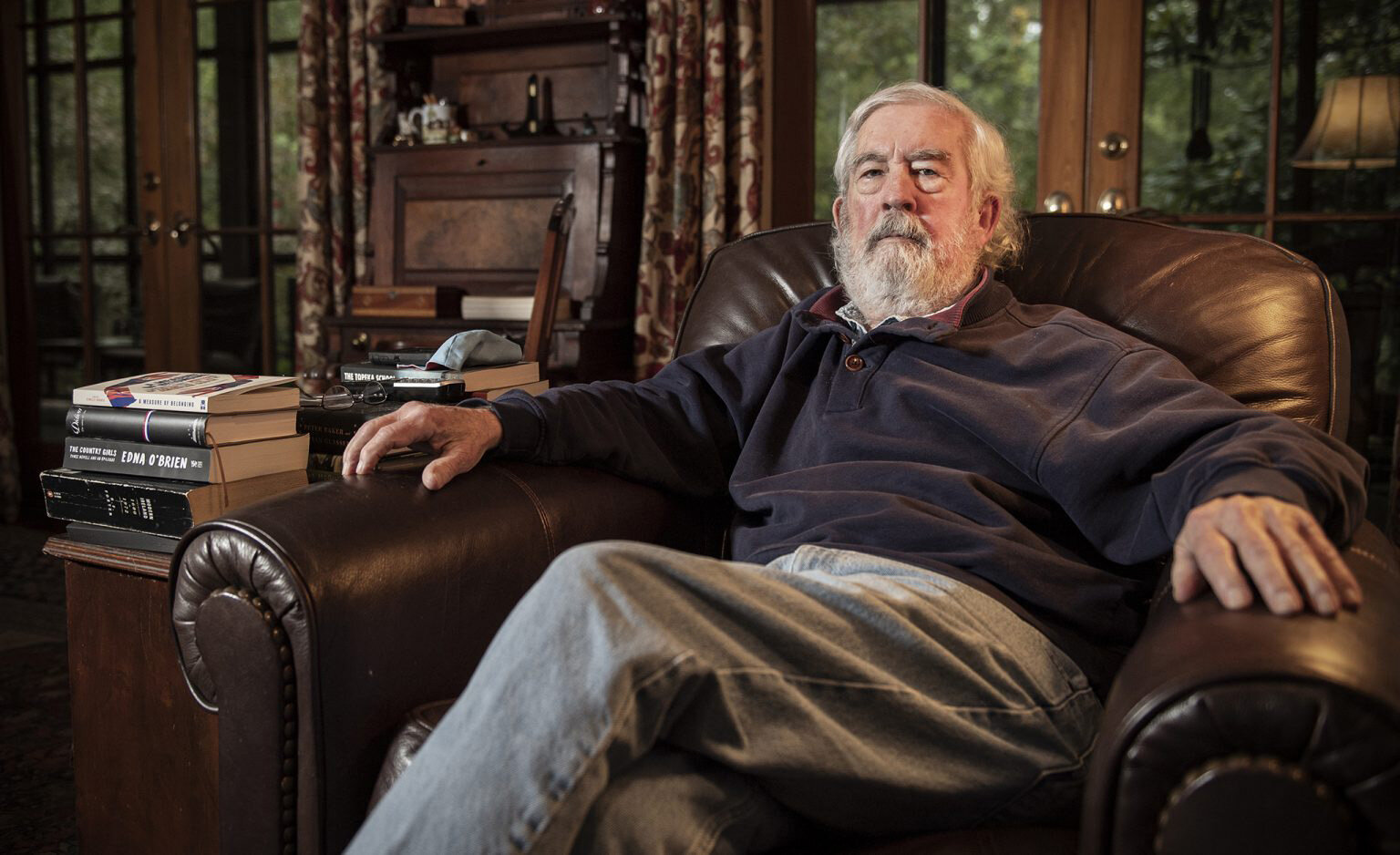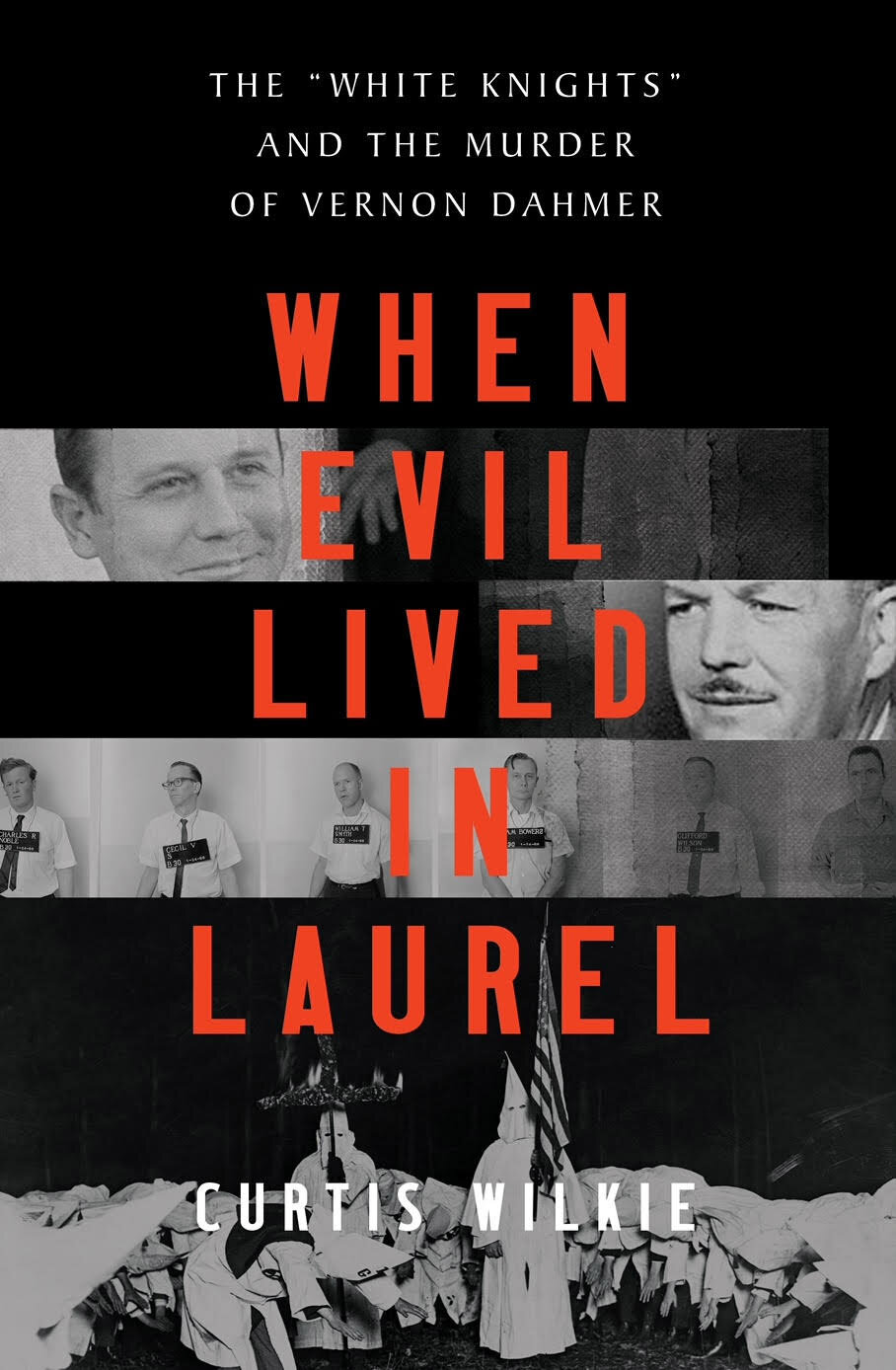Legend of Journalism Speaks in Jackson, Still Sounds Like He’s From the Delta

Curtis Wilkie, one of Mississippi’s best and best known journalists, came to Jackson last week to talk about his new book, When Evil Lived in Laurel: The “White Knights” and The Murder of Vernon Dahmer.
At both his speaking engagements in Jackson, at the Mississippi Department of Archives and History and at Lemuria Bookstore, Wilkie was asked whether Laurel, better known today as a television star than as a Klan hotbed, had liked his book.
“I don’t know, “ he replied, “I’ll find out tomorrow” -- when he was due to speak in Laurel.
Curtis Wilkie is a journalist who’s done it all and met almost everyone. He was born in Greenville and began his career in the Delta at the Clarksdale Press Register, covering the civil right movement of the 1960s. When he left Mississippi in 1969, he turned his back in anger at the state’s violence and said he was never going to live here again.

Curtis Wilkie has written his third book about his native South, When Evil Lived in Laurel: The "White Knights" and the Murder of Vernon Dahmer. Logan Kirkland/Ole Miss Digital Imaging Services
He went to work for the Boston Globe, where he was a national and foreign correspondent for 26 years. A veteran of eight presidential campaigns, he was one of the “boys” in Timothy Crouse’s The Boys on the Bus, which describes the 1971-1972 McGovern-Nixon campaign. In 1976, during the Carter campaign, the famous cartoonist David Levine caricatured Wilkie in Time magazine.
As the Globe’s Middle East bureau chief for three years in the mid-1980s, Wilkie noticed odd parallels to the Old South, some of which he recorded in his 2001 book, Dixie. Jewish settlers on the West Bank “swaggering through the cardamom-scented Arab souk in the Old City” he thought looked like “plantation managers patrolling a row of tenant farmers’ shacks.”
Through all this excitement, here and abroad, Wilkie kept his Delta accent pristine.
A friend of Wilkie from the Delta also had left Mississippi to seek his fortune on the East Coast. Writer and editor Willie Morris left Yazoo City for New York City, where in 1967 at age 33 he became the youngest editor of Harper’s magazine. His seminal book, North Toward Home, was a bestseller. But Morris returned to Mississippi in 1980 and began making calls after midnight to Wilkie to tell him, “Boy, it’s time to come home.”
Wilkie paid heed. He eased back into the South, eventually becoming the Globe’s Southern bureau chief in New Orleans in 1993. At a 1994 dinner party in Jackson’s Belhaven neighborhood with his friend Morris and Eudora Welty, Morris asked Wilkie, “after a lot of wine,” why he came back to the South. Wilkie replied, “Because people are kinder here.” That’s been my experience, too.
After making sure Mississippi was no longer the place it had been in the 1960s, Wilkie did come home, moving to Oxford in 2001. The next year, he began teaching journalism at Ole Miss, his alma mater. His students have included three grandchildren. Wilkie is now professor emeritus, free to concentrate on books. The book he discussed in Jackson last week is his sixth. Having covered just about everything else, Wilkie now writes about the South: This is his third book on it.
In Wilkie’s 2001 book, Dixie, he had included a chapter about the Klan’s 1966 murder of Vernon Dahmer, a business owner and farmer about 35 miles south of Laurel who had worked with Medger Evers and was leading a voter registration drive in Hattiesburg. It must have been particularly galling for the Klansmen that Dahmer was working in Forrest County, named for their first Grand Wizard, Nathan Bedford Forrest.

W. W. Norton & Company
For his new book, Wilkie was given access to the papers of Tom Landrum, a member of an old Jones County family who considered Laurel “home,” worked at the courthouse and at one point hoped to become an FBI agent. Appalled by the racial violence in Mississippi, especially the 1964 murders of the three young civil rights workers near Philadelphia, Landrum joined the Klan in 1965 as an unpaid FBI informant. He felt it was the right thing to do, even though it was very dangerous to do in a small place like Laurel.
The most touching part of When Evil Lived in Laurel takes place after the FBI approached Landrum. Eager to “do something,” Landrum first wanted to consult his family. He took his five children and his wife to the Florida Panhandle, where they consulted his mother-in-law. “First, we have to pray” for guidance, she said. The family’s fears, Wilkie writes, “were mitigated by something like a spiritual calling, a belief in seizing the rare opportunity to do good.” Landrum’s mother-in-law told him, “You have to do it.”
Landrum was unable to prevent Dahmer’s murder and the burning of his home and store. A witness did overhear Klan members issue a “Code Four” on Dahmer-- a signal for assassination -- but did not come forward for 35 years.
Last week, Wilkie’s visit to Laurel turned out to be “gratifying,” he said afterwards. A large number of Blacks and Whites turned out to hear him, and he signed books later “for about an hour and a half!”
By and large, the Klan has largely disappeared from Summit, where Wilkie spent his childhood, and from Laurel. I have trouble convincing my sister-in-law in New York, who loves Home Town, the HGTV show starring husband and wife team Ben and Erin Napier, who restore homes in Laurel, that what she is watching used to be Klan territory. I’m buying her a copy of Wilkie’s book. To understand how much the South has changed, we must know its history. Wilkie is to be commended for telling us about an important chapter in When Evil Lived in Laurel.
Ann Marie Cunningham is a Columbia University Lipman Fellow for 2020 who will be working with the Mississippi Center for investigative Reporting. She is a veteran journalist/producer and author of a best-seller. Her work has appeared in The New York Times, Los Angeles Times, Technology Review, The Nation and The New Republic. Contact her at amc@mississippicir.org.
